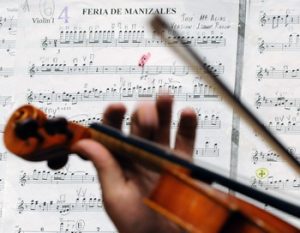initial tuning
Strengthening cathartic experiences with music
 One glance at a person who has in his memory a painful experience, actualized in the present, is enough to determine the presence of this experience. Usually, a person tries to hide an emotion that is struggling towards realization, perhaps interpreting it as negative.
One glance at a person who has in his memory a painful experience, actualized in the present, is enough to determine the presence of this experience. Usually, a person tries to hide an emotion that is struggling towards realization, perhaps interpreting it as negative.
But the tensions that arise in a person who suppresses his emotions, help to destroy the “primary essence”, which increases the alienation peculiar to most people from themselves and others (Lowen, 1975). According to Lowen, the “primary essence” is the pleasure of life, the source of which is the freedom of movement and the absence of tension in the body. Continue reading
Mozart effect
 Listening to Mozart’s music enhances our brain activity. After listening to Mozart, people responding to the standard IQ test demonstrate an increase in intelligence.
Listening to Mozart’s music enhances our brain activity. After listening to Mozart, people responding to the standard IQ test demonstrate an increase in intelligence.
This phenomenon discovered by some scientists was called the “Mozart effect.” Far-reaching conclusions were immediately drawn from it, especially with regard to the upbringing of children, whose first three years of life were proclaimed decisive for their future intelligence.
This theory received such a strong public response that Mozart’s CDs, with the appropriate recommendations of parents, hit the very beginning of the bestseller lists, and the Governor of the US state of Georgia presented a Mozart CD to each new mother in his staff. Continue reading
Music in your head
 Before modern neuroimaging techniques were developed, researchers studied the musical abilities of the brain, observing patients (including famous composers) with various disruptions in their activity due to injury or stroke. So, in 1933, the French composer Maurice Ravel developed symptoms of local brain degeneration – a disease accompanied by atrophy of certain sections of brain tissue. The composer’s mental abilities did not suffer: he remembered his old works and played scales well. But he could not compose music. Speaking about his alleged opera “Joan of Arc”, Ravel confessed: “Opera is in my head, I hear it, but I will never write it. Continue reading
Before modern neuroimaging techniques were developed, researchers studied the musical abilities of the brain, observing patients (including famous composers) with various disruptions in their activity due to injury or stroke. So, in 1933, the French composer Maurice Ravel developed symptoms of local brain degeneration – a disease accompanied by atrophy of certain sections of brain tissue. The composer’s mental abilities did not suffer: he remembered his old works and played scales well. But he could not compose music. Speaking about his alleged opera “Joan of Arc”, Ravel confessed: “Opera is in my head, I hear it, but I will never write it. Continue reading


